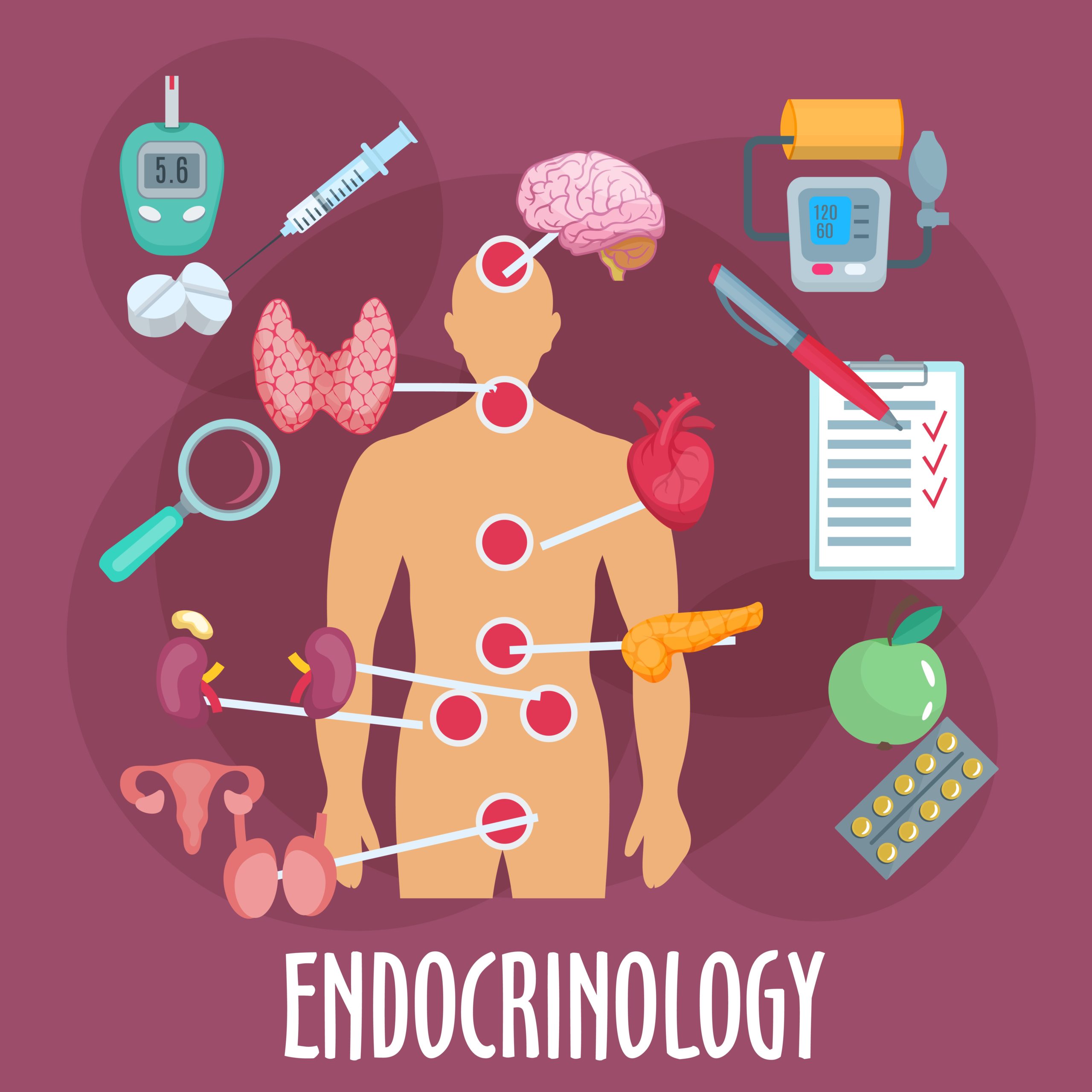Endocrinologist in Leander: Competence in Hormonal Conditions and Treatments
Wiki Article
The Science Behind Hormonal Agent Guideline: Insights From an Endocrinologist
The Science Behind Hormonal Agent Law: Insights From an Endocrinologist provides a thorough exploration of the complex procedures involved in hormone guideline. Whether you are a medical expert seeking a much deeper understanding of endocrine feature or an individual interested in learning regarding the scientific research behind hormonal agent regulation, this book is a very useful resource.Hormones and Their Functions
Hormones play important duties in the regulation and coordination of different physical processes within the body. These chemical carriers are produced by endocrine glands and are released right into the bloodstream, where they travel to target cells or organs to exert their effects. The features of hormonal agents are varied and include nearly every element of human physiology.One of the key features of hormonal agents is to preserve homeostasis, which is the steady internal environment necessary for the body to operate ideally. Insulin, a hormonal agent created by the pancreas, regulates blood sugar degrees by promoting the uptake and storage of sugar in cells. An additional hormone, cortisol, helps the body respond to tension by raising blood sugar degrees and reducing the immune system.
Hormones additionally play vital roles in development and development. Growth hormonal agent, produced by the pituitary gland, boosts the growth of bones and cells, while thyroid hormones manage metabolism and affect the development of the anxious system - Best endocrinologist near me. In addition, reproductive hormones, such as estrogen and testosterone, are accountable for the growth and maintenance of additional sex-related characteristics and the guideline of the menstruation
The Endocrine System: A Summary
Playing a crucial function in the law and coordination of physical procedures, the endocrine system is a complex network of glands that create and launch hormones right into the blood stream. These glands, consisting of the hypothalamus, pituitary gland, thyroid gland, adrenal glands, pancreas, ovaries, and testes, secrete hormonal agents that act as chemical carriers, influencing various physical features. The endocrine system operates in combination with the nerves to maintain and regulate homeostasis, making certain that the body's interior setting stays stable.The hypothalamus, situated in the brain, is thought about the master regulatory authority of the endocrine system. It produces hormonal agents that boost or prevent the launch of hormones from the pituitary gland, which subsequently regulates the activity of various other endocrine glands. The thyroid gland, situated in the neck, creates hormones that regulate metabolic process and energy equilibrium. The adrenal glands, situated atop the kidneys, create hormonal agents that help the body reply to tension and regulate high blood pressure.

Policy of Hormone Production
The regulation of hormonal agent manufacturing entails an intricate interaction between different glands and comments systems within the endocrine system. Hormones are chemical carriers that play an essential function in preserving homeostasis and collaborating different physical processes in the body. The production of hormonal agents is snugly regulated to make certain the appropriate functioning of the endocrine system.The hypothalamus, located in the brain, functions as a key regulator of hormone production. It releases hormonal agents that stimulate or inhibit the production of hormones by the pituitary gland, which is typically referred to as the "master gland" of the endocrine system. The pituitary gland, in turn, creates hormones that act upon numerous target glands throughout the body, boosting them to produce and launch certain hormones.
Comments devices likewise play a vital function in hormone guideline. There are two kinds of feedback systems: negative comments and favorable feedback. Adverse feedback Best endocrinologist in texas assists maintain hormone degrees within a narrow array. When hormone degrees climb above or drop below the optimum range, the body triggers systems to either decrease or boost hormonal agent production, specifically, to bring back equilibrium. Positive responses, on the other hand, enhances the production of hormonal agents in response to particular stimuli, such as childbirth.
Responses Loops in Hormonal Agent Guideline
Responses loops play a crucial function in the policy of hormone manufacturing. These loopholes include a series of communications between the endocrine glands, hormonal agents, and target organs to keep homeostasis in the body. There are two kinds of comments loopholes: unfavorable feedback and favorable feedback.Adverse responses is the most usual type of responses loop in hormone guideline. It functions by sensing the levels of a hormonal agent in the blood and adjusting hormonal agent production appropriately. When hormonal agent levels climb over a certain limit, the hypothalamus in the mind signals the pituitary gland to reduce hormone manufacturing. This, consequently, lowers the excitement of the target body organ, bring about a decrease in hormonal agent secretion. Alternatively, when hormonal agent degrees go down below the limit, the hypothalamus boosts the pituitary gland to raise hormonal agent manufacturing, recovering balance.
Favorable responses loopholes, on the other hand, enhance hormone production. This takes place when a hormonal agent promotes the launch of more of the very same hormonal agent, causing a fast increase in its degrees. Nevertheless, positive responses loopholes are less typical in hormone regulation and are usually associated with specific physiological processes, such as giving birth and lactation.
Factors Influencing Hormone Equilibrium
Factors influencing hormone balance consist of dietary choices, way of living behaviors, and environmental direct exposures. These factors can have a considerable influence on the delicate balance of hormonal agents in the body, influencing various physical procedures and overall health.Dietary options play an essential function in hormonal agent law. Consuming a balanced diet plan that consists of a selection of nutrients is crucial for maintaining hormone equilibrium. Particular nutrients, such as omega-3 fatty acids, vitamins, and minerals, are especially crucial for optimum hormonal agent function. On the other hand, a diet plan high in refined foods, fine-tuned sugars, and harmful fats can disrupt hormonal agent degrees and bring about imbalances.
Ample rest is important for hormone production and policy, as disrupted rest patterns can lead to inequalities. Furthermore, chronic tension can dysregulate the hypothalamic-pituitary-adrenal (HPA) axis, an essential player in hormonal agent law, leading to a waterfall of hormone inequalities.

Final Thought
Finally, comprehending the science behind hormonal agent guideline is important for keeping general health and wellness. Hormonal agents play important duties in different bodily features, and their production is controlled by intricate comments loopholes. Aspects such as diet plan, way of living, and anxiety choices can influence hormonal agent equilibrium. By studying and understanding these mechanisms, we can better recognize and manage hormone-related problems, ultimately bring about improved health and wellness end results.The Scientific Research Behind Hormonal Agent Policy: Insights From an Endocrinologist offers a comprehensive expedition of the complex processes involved in hormonal agent guideline. It produces hormonal agents that prevent the release or stimulate of hormonal agents from the pituitary gland, which in turn manages the activity of various other endocrine glands. It launches hormones that boost or prevent the manufacturing of hormones by the pituitary gland, which is frequently referred to as the "master gland" of the endocrine system. The pituitary gland, in turn, produces hormonal agents that act on different target glands throughout the body, boosting them to create and release details hormones.
When hormonal agent levels climb over a certain limit, the hypothalamus in the brain signifies the pituitary gland to reduce hormonal agent production. (Endocrinology)
Report this wiki page